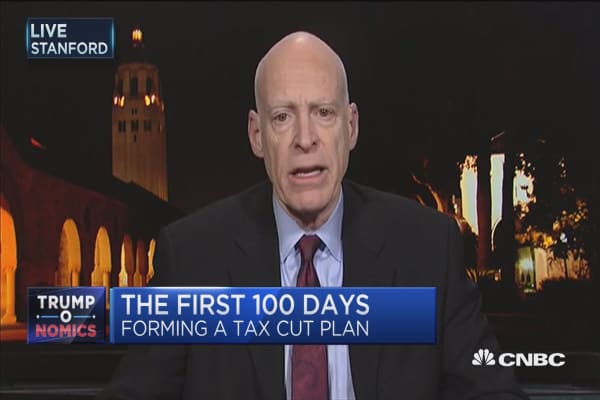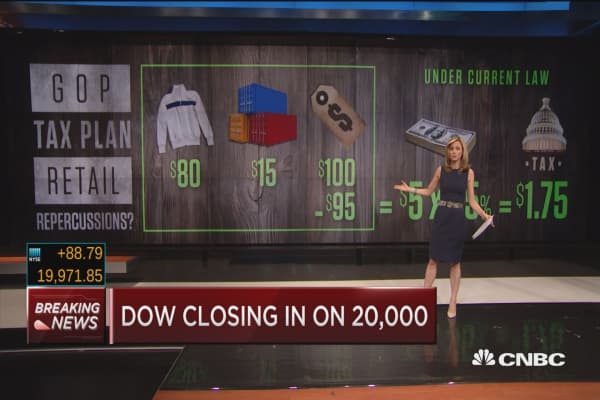The proposal is part of an effort to keep the tax cuts revenue neutral by increasing the base. But it's already creating a stir in sectors that would be hurt most — retail, autos and refining.
"When you broaden the base, you step on many, many lobbyists' toes, and many industries get hurt by it. That means it's going to be a real feeding frenzy next year," said Citigroup head of North American economics William Lee.
As Wall Street scrambles to analyze the tax's effect on profits, economists say a border-adjusted levy could impede growth. But they also say it could trigger a rise in the dollar, and that would be a positive offset of the effects of the tax.
While it should also make imports less desirable and boost exports, there are a whole range of effects that remain unclear, like what it would do to cross-border services, such as those provided by investment firms, lawyers and others.
"It's extremely difficult to model. It's generally accepted that something like that would cause the dollar to rise, and we would note the dollar has already risen since prior to the election by a degree of magnitude that would imply an earnings headwind of around 2 percent at the S&P 500 level," said Emanuel.
Clifton said there would be winners and losers on both sides. Boeing, for instance, imports parts for manufacturing, as does the auto industry. But then what it makes and exports would no longer be taxed. Clifton said he expects to see proposals made for some industries to be exempted, possibly North American oil for one, or maybe even the entire services sector.
"When you broaden the base, you step on many, many lobbyists toes and many industries get hurt by it. That means it's going to be a real feeding frenzy next year," said Citigroup head of North American economics William Lee.
Citigroup's Lee said the House proposal to end interest deductibility is more worrisome. All companies that regularly borrow funds would see their costs rise, and those that are depend on debt in the high-yield world would feel an especially hard pinch.
"That would change the way financing is done. All this debt financing goes out the window, and it will raise the effective corporate tax rate," he said. U.S. companies have issued a record amount of new investment-grade corporate debt, totaling more than $1.3 trillion. "It would kill our [mergers and acquisition] industry in a heartbeat. It would be quite costly … that effectively raises the tax rate on all companies."
But Lee said the destination tax is still a "battle of the wonks," and it's not clear how far it will go.
"If it does happen, it will take five years to happen. The whole trick is you change the balance of trade. You lower imports and you raise exports. That means the dollar should appreciate. The U.S. is running the reverse. The dollar responds to a lot of things. It responds most to interest rate differentials. Monetary policy has the biggest impact on the dollar, and these trade effects slip in after that," he said.



